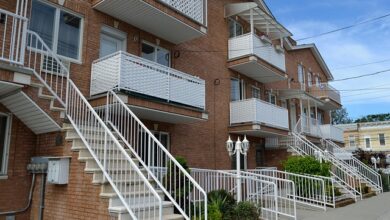Renters Insurance for Students in Luxembourg: Is It Necessary?

For students living away from home in Luxembourg, whether in dormitories, shared apartments, or private rentals, protecting personal belongings and managing liabilities can be an important consideration. While renters insurance may not be the first thing on a student’s mind, it can provide valuable protection at an affordable cost. In this article, we’ll explore what renters insurance covers, why it might be necessary for students in Luxembourg, and how to determine if it’s the right choice for you.
What Is Renters Insurance?
Renters insurance is a type of policy designed to protect tenants from financial losses related to their personal property, liability, and additional living expenses. Unlike homeowners insurance, which covers the structure of a home, renters insurance focuses solely on the tenant’s belongings and responsibilities within the rented space.
A typical renters insurance policy includes three main components:
- Personal Property Coverage: Protects your belongings (e.g., electronics, clothing, furniture) against perils like theft, fire, vandalism, and certain natural disasters.
- Liability Protection: Covers you if someone is injured in your rental unit or if you accidentally damage someone else’s property.
- Additional Living Expenses (ALE): Helps pay for temporary housing and other costs if your rental becomes uninhabitable due to a covered event.
Why Renters Insurance Might Be Necessary for Students
While many students assume their parents’ homeowners insurance or their landlord’s policy will cover them, there are limitations to these options. Here’s why renters insurance might be worth considering:
1. Protection for Expensive Belongings
Students often bring valuable items to their accommodations, such as laptops, smartphones, tablets, bicycles, and textbooks. If these items are stolen, damaged, or destroyed, replacing them out-of-pocket can be costly. Renters insurance ensures you’re reimbursed for the value of your lost or damaged possessions.
- Dorm Room Example: If your laptop and TV are stolen from your dorm room, renters insurance could help replace them.
- Apartment Example: If a fire damages your furniture and clothes in an off-campus apartment, renters insurance would cover the replacement costs.
2. Liability Coverage
Accidents happen, and liability coverage can protect you from unexpected expenses. For instance:
- If a guest slips and injures themselves in your apartment, renters insurance can help cover medical bills or legal fees.
- If you accidentally start a fire that damages your rental unit or neighboring spaces, liability coverage can handle repair costs.
3. Coverage Beyond Your Parents’ Policy
Some students assume their parents’ homeowners insurance will extend to their belongings while they’re away at school. While this is sometimes true, there are restrictions:
- Most homeowners policies only cover personal property located within a certain distance from the primary residence (often 100 miles).
- Coverage limits for off-premises belongings are typically lower than those for items kept at home.
- Claims made under a parent’s policy could increase their premiums.
Renters insurance provides standalone coverage tailored specifically to your needs.
4. Affordable Premiums
One of the biggest misconceptions about renters insurance is that it’s expensive. In reality, premiums are quite affordable, especially for students. On average, renters insurance costs between €5 and €15 per month—less than the cost of a few cups of coffee each week. For the peace of mind it offers, it’s a small price to pay.
When Renters Insurance May Not Be Necessary
While renters insurance has clear benefits, it’s not always essential for every student. Here are some scenarios where it might not be necessary:
1. Minimal Valuable Possessions
If you don’t own many high-value items and could easily replace your belongings without financial strain, renters insurance might not be worth the expense.
2. Covered Under Parents’ Policy
If your parents’ homeowners insurance extends to your belongings while you’re at school, you may already have sufficient coverage. However, confirm the details with your insurance provider to ensure there are no gaps.
3. Living in a Highly Secure Environment
If you live in a dorm with strict security measures (e.g., keycard access, surveillance cameras), the risk of theft or damage may be lower. That said, accidents and unforeseen events can still occur.
How to Save Money on Renters Insurance
If you decide renters insurance is right for you, here are some tips to keep costs low:
- Choose a Higher Deductible: Opting for a higher deductible (the amount you pay out-of-pocket before coverage kicks in) can reduce your premium.
- Bundle Policies: If you already have auto insurance, ask your provider about bundling renters insurance for a discount.
- Improve Security Measures: Installing smoke detectors, deadbolts, or a security system in your rental unit may qualify you for discounts.
- Compare Quotes: Shop around and compare quotes from multiple insurers to find the best rate.
- Select Actual Cash Value (ACV) Over Replacement Cost: ACV policies reimburse you for the depreciated value of your items, making them cheaper than replacement cost policies, which pay for new items of similar kind and quality.
Tips for Choosing the Right Policy
When selecting renters insurance, consider the following:
- Inventory Your Belongings: Create a detailed list of your possessions, including estimated values. This will help you determine how much coverage you need.
- Understand Coverage Limits: Ensure your policy covers high-value items like jewelry, electronics, or musical instruments. You may need to add endorsements or riders for these items.
- Check Exclusions: Review what’s excluded from coverage (e.g., floods, earthquakes) and consider supplemental policies if needed.
- Read Reviews: Research insurers’ reputations for customer service and claims handling.



